Your support helps us to tell the story
From reproductive rights to climate change to Big Tech, The Independent is on the ground when the story is developing. Whether it’s investigating the financials of Elon Musk’s pro-Trump PAC or producing our latest documentary, ‘The A Word’, which shines a light on the American women fighting for reproductive rights, we know how important it is to parse out the facts from the messaging.
At such a critical moment in US history, we need reporters on the ground. Your donation allows us to keep sending journalists to speak to both sides of the story.
The Independent is trusted by Americans across the entire political spectrum. And unlike many other quality news outlets, we choose not to lock Americans out of our reporting and analysis with paywalls. We believe quality journalism should be available to everyone, paid for by those who can afford it.
Your support makes all the difference.
Friedrich Merz was set to become Germany’s new chancellor after provisional results confirmed his mainstream conservatives had won the national election.
The results showed Mr Merz’s Christian Democrats and the center-left Social Democrats winning a combined majority of parliamentary seats after small parties failed to make the electoral threshold.
The far-right Alternative for Germany, or AfD, surged to become the nation’s second-largest party.
Mr Merz said he hoped to form a government by Easter at the latest. The conservatives would do everything to form a government capable of taking action as quickly as possible, he added.He, however, ruled out a coalition with AfD.
Earlier, US president Donald Trump hailed Sunday as a “great day for Germany” after Mr Merz claimed victory.
Exit polls had predicted the conservative bloc was on course to win first place with 28.5 per cent of the vote followed by AfD with 20 per cent, marking the party’s strongest result ever.
Incumbent chancellor Olaf Scholz’s Social Democratic Party was projected to garner just 16.5 per cent of the vote, its worst-ever result.
Why have most parties refused coalition with far-right AfD
The anti-immigrant far-right party Alternative for Germany, or AfD, has established itself as a significant political force in the 12 years since it was founded, but it has not yet been part of any state or national government.
That is the result of what is often called a “firewall” against AfD.
Mainstream parties in the country say they will not work with the AfD, despite the party emerging as the second largest in this election. The party is under observation by the domestic intelligence agency for suspected right-wing extremism, something that AfD objects to strongly.
Its branches in three eastern states are designated “proven right-wing extremist” groups, which is particularly sensitive in view of Germany’s Nazi past.
Germany’s far-right AfD sees a surge
A far-right party has surged to become Germany’s second-largest party in the national election, confirmed provisional results. Alternative for Germany, or AfD, won 152 seats in 630-seat Budestag, in its best showing ever.
The AfD was jubilant on Sunday night, with leaders vowing to become the country’s main party in the next election as its appeal expands.
The anti-immigrant, far-right party has established itself as a significant political force in the 12 years since it was founded, but it has not yet been part of any state or national government.
Namita Singh24 February 2025 06:36
Germany’s Merz faces tricky talks with potential coalition ally
Germany’s likely next chancellor Friedrich Merz will start trying to form a coalition government this morning after his conservative bloc won a national election that saw far-right and far-left parties hoover up support from disaffected voters.
Mr Merz, who has no previous experience in office, is set to take charge with Europe’s largest economy ailing, its society split over migration and its security caught between a confrontational US and an assertive Russia and China.
The 69-year-old faces lengthy coalition negotiations after the far-right Alternative for Germany (AfD) surged to a historic second place in a fractured vote following the collapse of chancellor Olaf Scholz’s unloved three-way alliance.
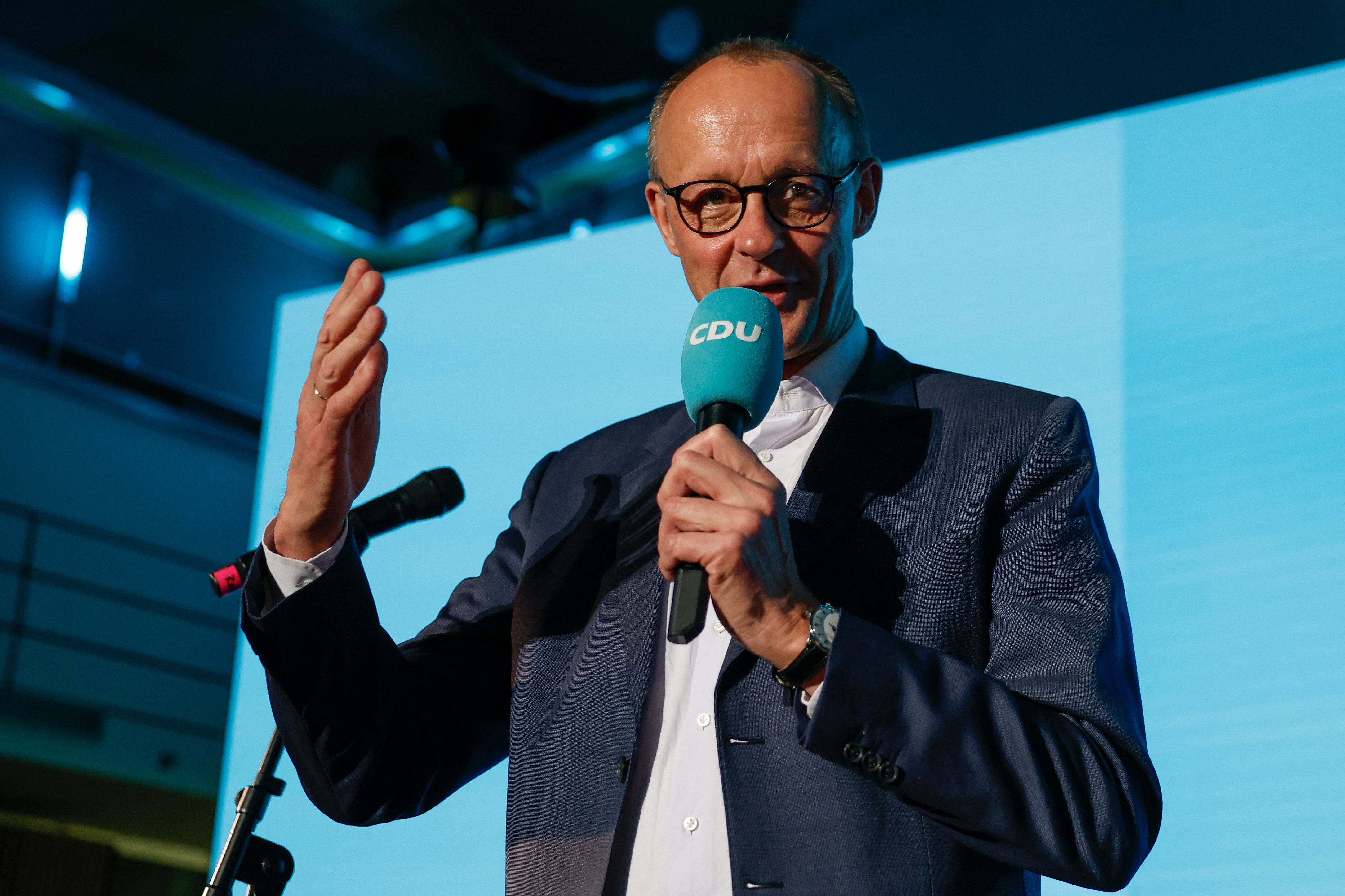
His conservative CDU/CSU bloc came in first place on 28.6 per cent, ahead of the far-right Alternative for Germany on 20.8 per cent, its best ever result, according to provisional results.
Mainstream parties, however, rule out working with the AfD, a party which is monitored by German security services on suspicion of extremism but has been endorsed by US figures including billionaire Elon Musk.
That means Mr Merz will have to negotiate with Mr Scholz’s centre-left Social Democrats (SPD) to form a coalition in talks that are likely to take months following a bruising campaign that highlighted policy differences.
Namita Singh24 February 2025 06:34
Merz’ CDU wins 208 seats
Friedrich Merz’s conservatives won 208 seats in the 630-seat Bundestag, while the AfD won 152. The incumbent Social Democrats won 120 seats and the Left party got 64.
The left-wing Sahra Wagenknecht Alliance came in just barely under the five per cent hurdle needed to get seats in parliament, while the pro-business Free Democrats also failed to reach five per cent.
Namita Singh24 February 2025 06:21
Conservatives win German election as far-right party surges to second place
Provisional results confirmed that mainstream conservatives led by Friedrich Merz won Germany’s national election, while a far-right party surged to become the nation’s second-largest.
The campaign was dominated by worries about the yearslong stagnation of Europe’s biggest economy and pressure to curb migration, something that caused friction after Mr Merz pushed hard in recent weeks for a tougher approach. It took place against a background of growing uncertainty over the future of Ukraine and Europe’s alliance with the United States.
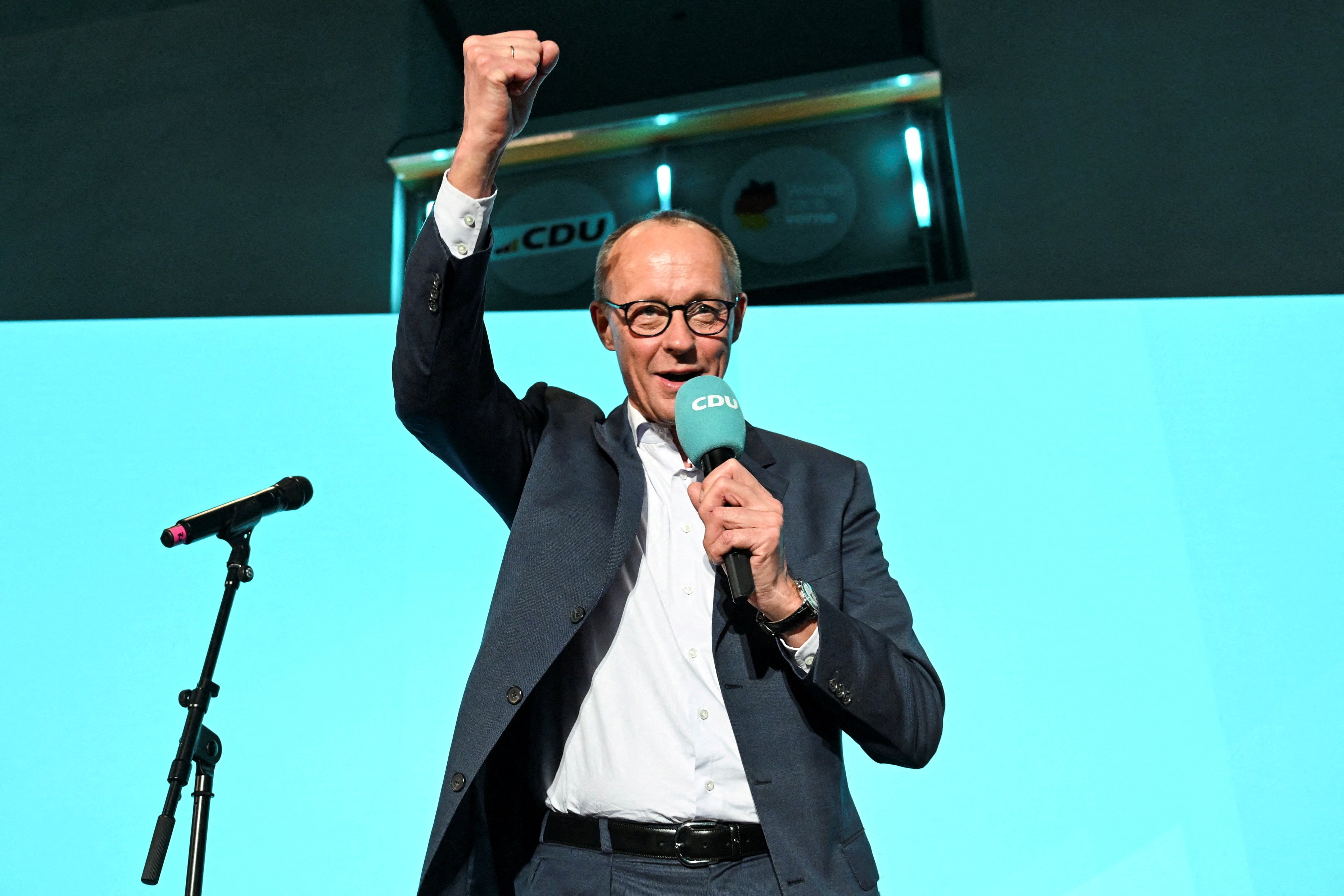
The results released by the electoral authority showed Mr Merz’s Christian Democrats and the center-left Social Democrats winning a combined majority of seats in the national legislature after small parties failed to make the electoral threshold.
That gives Mr Merz the best chance of becoming the country’s next chancellor. He said on election night that he hopes to form a government by Easter at the latest.
He has ruled out a coalition with the far-right Alternative for Germany, or AfD, which is now the country’s second-largest party after its best showing ever.
Namita Singh24 February 2025 05:34
Merz questions longevity of Nato’s ‘current form’
Germany’s likely next chancellor Friedrich Merz questioned whether Nato would remain in its “current form” by June in light of the comments by US president Donald Trump’s administration, and that Europe must quickly establish an independent defence capability.
“I would never have thought that I would have to say something like this in a TV show but, after Donald Trump’s remarks last week…it is clear that this government does not care much about the fate of Europe,” Mr Merz told German public broadcaster ARD after his conservatives won a national election.
Last week, the Trump administration shocked European allies by telling them they must take care of their own security and rely less on the United States, while announcing talks with Russia to end the war in Ukraine without involving Europe.
US Secretary of Defence Pete Hegseth warned Europeans “stark strategic realities” would prevent the US from being primarily focused on the security of Europe.
Referring to a Nato summit scheduled for June, Mr Merz said he was curious to see “whether we will still be talking about Nato in its current form then or whether we will have to establish an independent European defence capability much more quickly”.
On Friday, Mr Merz told public broadcaster ZDF that Germany would need to come to terms with the possibility that Mr Trump might not stick with Nato’s mutual-defence pledge unrestrictedly.
He said this meant that Berlin might need to become less reliant on the US with regard to their nuclear umbrella, too, and advocated talks with Europe’s nuclear powers France and Britain about an expansion of their nuclear protection.
Namita Singh24 February 2025 05:32
A delighted far-right party expresses desire to support Merz
The co-leader of the anti-immigration Alternative for Germany, or AfD, projected to win about 20.5 per cent votes, told cheering supporters that “we have achieved something historic today”.
“We are now the political center and we have left the fringes behind us,” said Tino Chrupalla. The party’s strongest previous showing was 12.6 per cent in 2017, when it first entered the national parliament.
The party’s candidate for chancellor, Alice Weidel, said it is “open for coalition negotiations” with Friedrich Merz’s party, and that “otherwise, no change of policy is possible in Germany”.
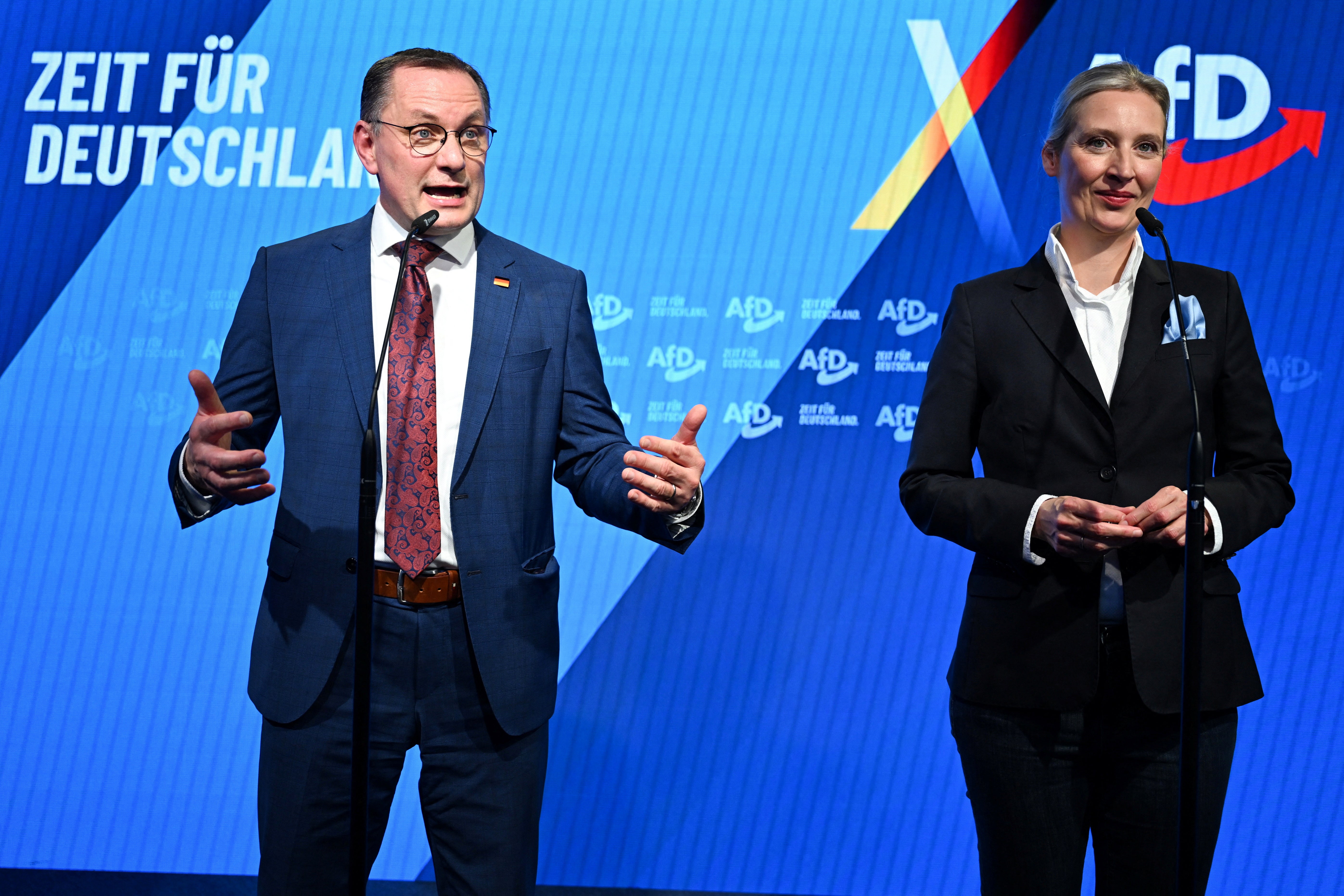
Mr Merz has repeatedly ruled out working with AfD, as have other mainstream parties — and did so again in a televised post-election exchange with Ms Weidel and other leaders.
Ms Weidel suggested AfD wouldn’t have to make many concessions to secure a theoretical coalition, arguing that the Union largely copied its programme and deriding its “Pyrrhic victory”.
“It won’t be able to implement it with left-wing parties,” she said. If Mr Merz ends up forming an alliance with the Social Democrats and Greens, “it will be an unstable government that doesn’t last four years, there will be an interim Chancellor Friedrich Merz and in the coming years we will overtake the Union”.
Mr Merz dismissed the idea that voters wanted a coalition with AfD. “We have fundamentally different views, for example on foreign policy, on security policy, in many other areas, regarding Europe, the euro, Nato,” he said.
“You want the opposite of what we want, so there will be no cooperation,” Mr Merz added.
Olaf Scholz decried AfD’s success. He said that “that must never be something that we will accept. I will not accept it and never will”.
Namita Singh24 February 2025 04:12
Greens advise Merz to moderate his tone
The Greens’ candidate for chancellor, vice chancellor Robert Habeck, said that Friedrich Merz would do well to moderate his tone after a hard-fought campaign.
“We have seen the center is weakened overall, and everyone should look at themselves and ask whether they didn’t contribute to that,” said Mr Habeck.
“Now he must see that he acts like a chancellor.”
The Greens were the party that suffered least from participating in Mr Scholz’s unpopular government. The Social Democrats’ general secretary, Matthias Miersch, suggested that their defeat was no surprise — “this election wasn’t lost in the last eight weeks.”
Namita Singh24 February 2025 03:58
Merz struggle to establish viable government
Whether Friedrich Merz will have a majority to form a coalition with Olaf Scholz’s Social Democrats or need a second partner too, which would realistically have to be the Greens, will depend on whether the Sahra Wagenknecht Alliance or BSW gets into parliament.
While Mr Merz’ party is projected to receive 28.5 per cent votes, the exit polls put Mr Scholz’s Social Democrats at just over 16 per cent and Greens at about 12 per cent.
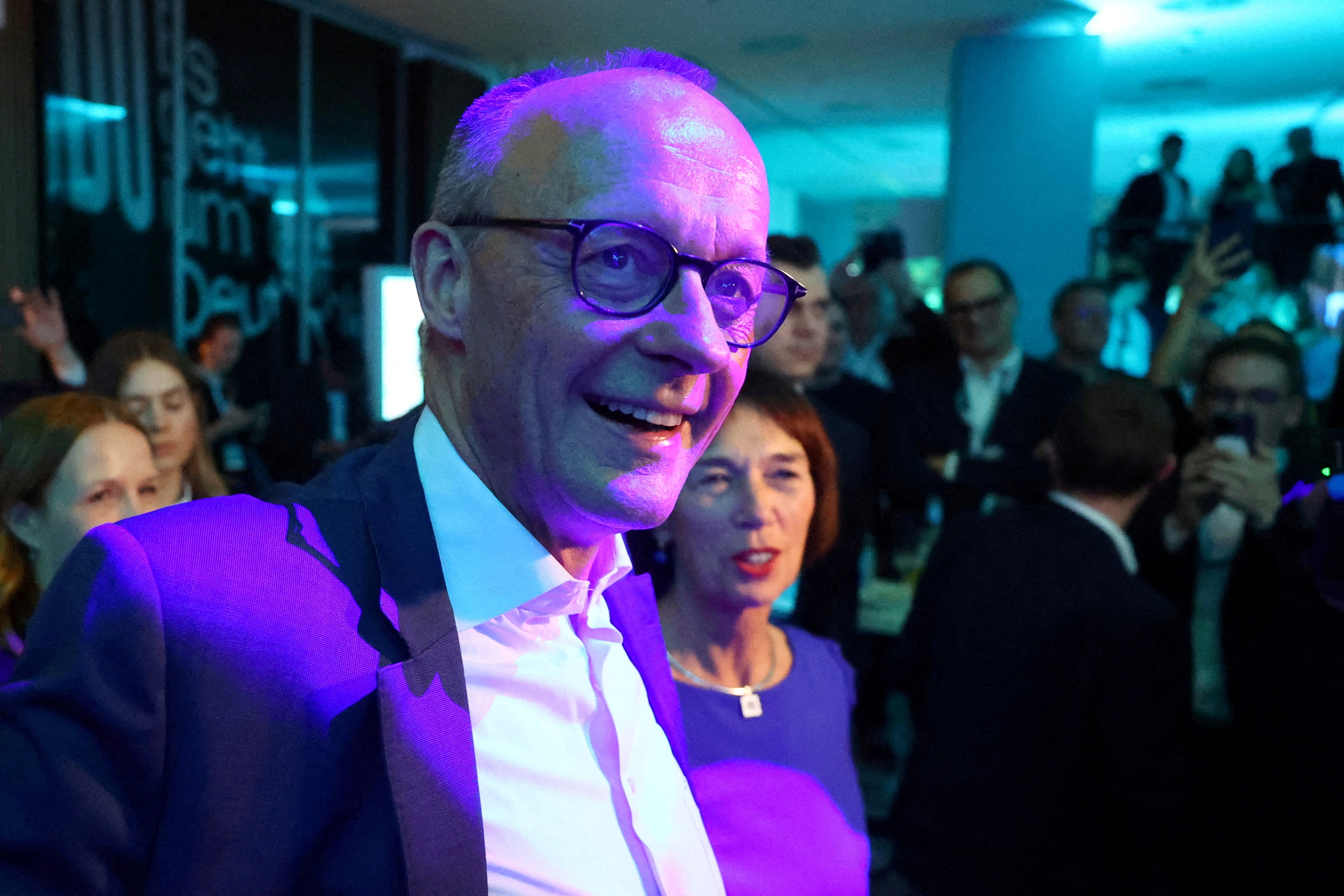
The Sahra Wagenknecht Alliance , or the BSW is around five per cent.
The conservative leader said that “the most important thing is to re-establish a viable government in Germany as quickly as possible”.
“I am aware of the responsibility,” Mr Merz said. “I am also aware of the scale of the task that now lies ahead of us. I approach it with the utmost respect, and I know that it will not be easy.”
“The world out there isn’t waiting for us, and it isn’t waiting for long-drawn-out coalition talks and negotiations,” he told cheering supporters.
Namita Singh24 February 2025 03:38
What led to Scholz’ fall
The election took place seven months earlier than originally planned after Olaf Scholz’s unpopular coalition collapsed in November, three years into a term that was increasingly marred by infighting. There was widespread discontent and not much enthusiasm for any of the candidates.
The campaign was dominated by worries about the years-long stagnation of Europe’s biggest economy and pressure to curb migration — something that caused friction after Friedrich Merz pushed hard in recent weeks for a tougher approach. It took place against a background of growing uncertainty over the future of Ukraine and Europe’s alliance with the United States.
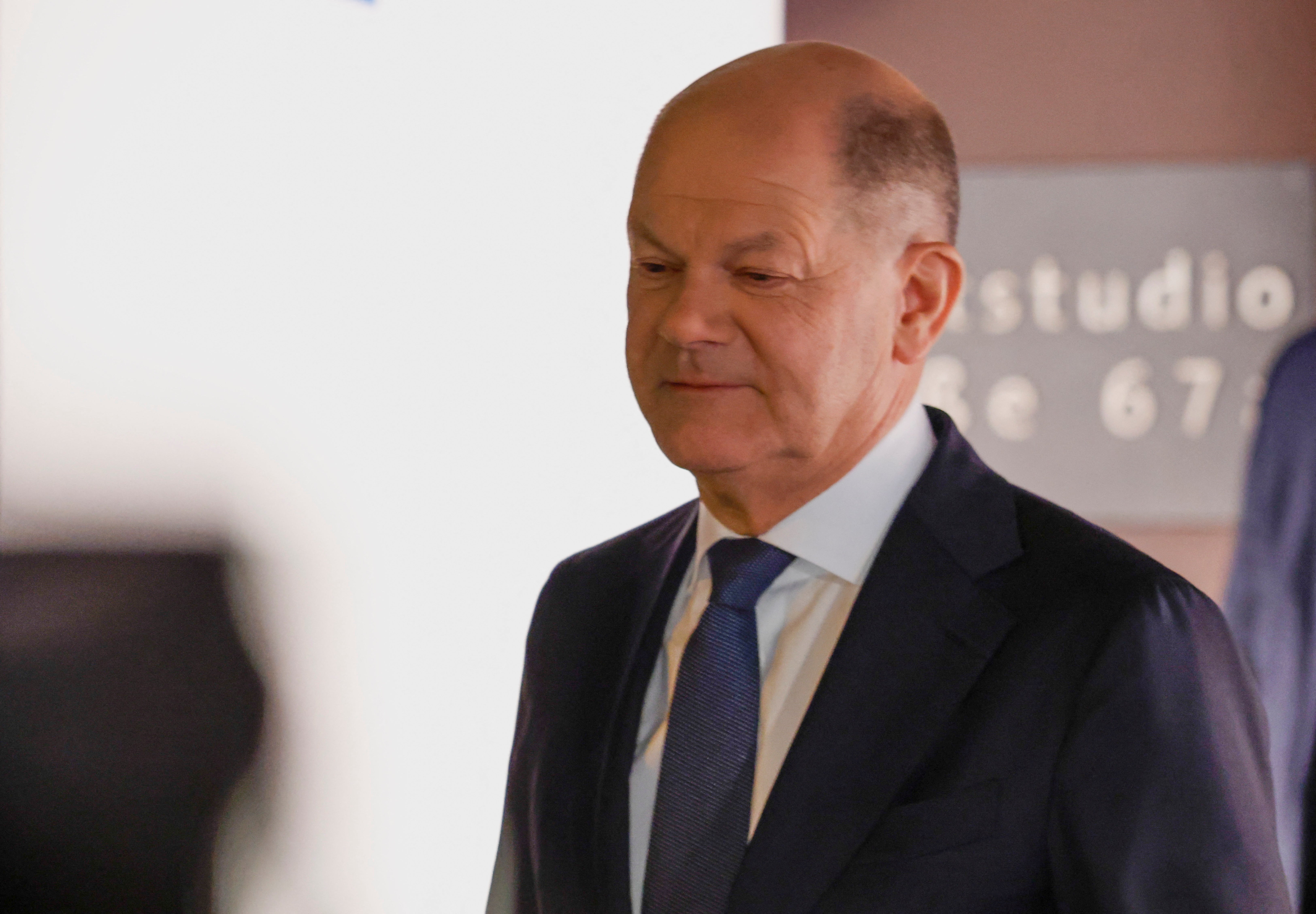
Germany is the most populous country in the 27-nation European Union and a leading member of Nato. It has been Ukraine’s second-biggest weapons supplier, after the US. It will be central to shaping the continent’s response to the challenges of the coming years, including the Trump administration’s confrontational foreign and trade policy.
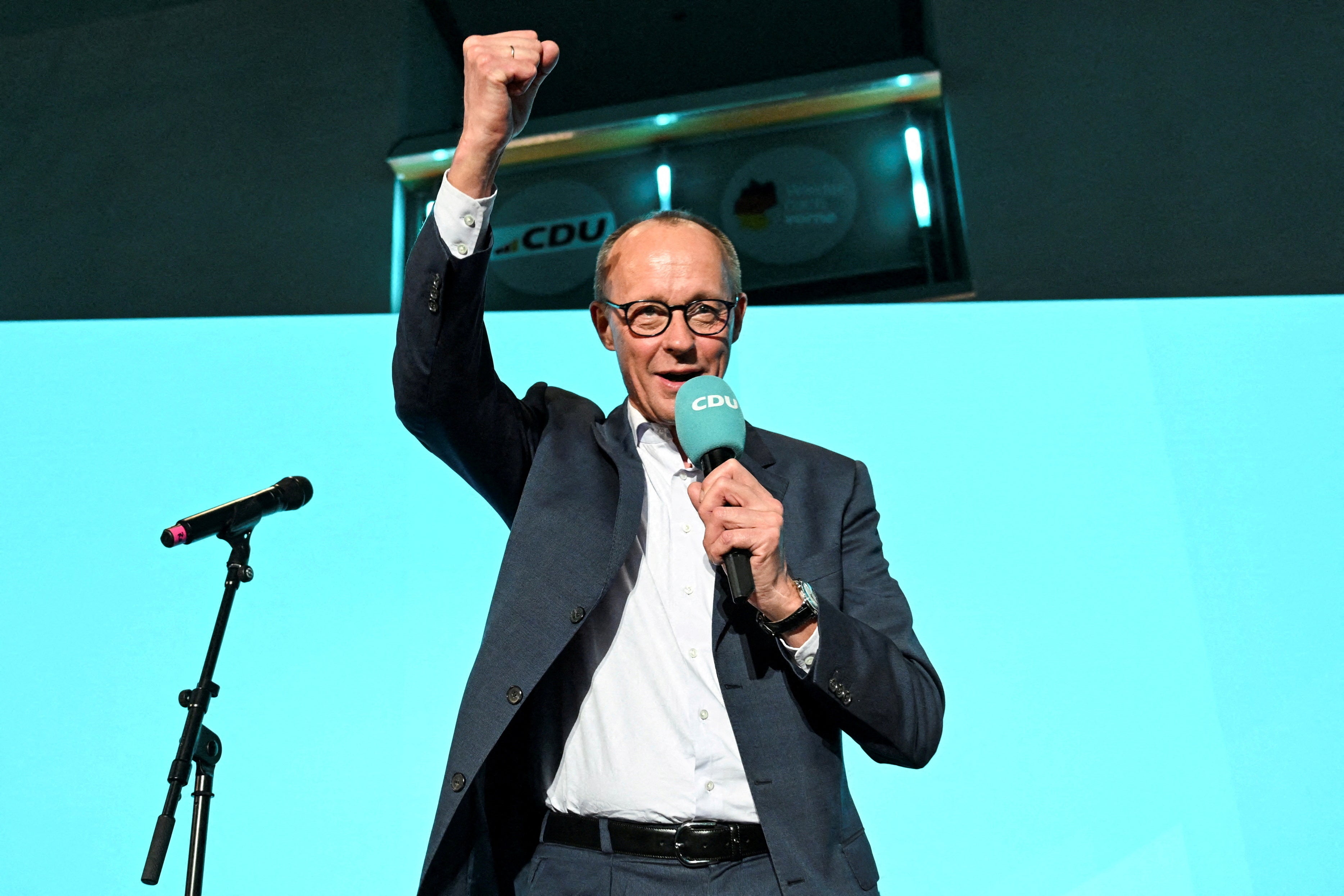
The projections, based on exit polls and partial counting, put support for Mr Merz’s Union bloc around 28.5 per cent and the anti-immigration Alternative for Germany, or AfD, about 20.5 per cent — roughly double its result from 2021.
They put support for Mr Scholz’s Social Democrats at just over 16 per cent, far lower than in the last election and below their previous post-war low of 20.5 per cent from 2017. The environmentalist Greens, their remaining partners in the outgoing government, were on about 12 per cent.
Out of three smaller parties, one — the hard-left Left Party — strengthened its position, winning up to nine per cent of the vote after a remarkable comeback. The pro-business Free Democrats, who were the third party in the collapsed government, looked likely to lose their seats in parliament with about 4.5 per cent. The Sahra Wagenknecht Alliance, or BSW, was hovering around the five per cent threshold needed to win seats.
Namita Singh24 February 2025 03:23


